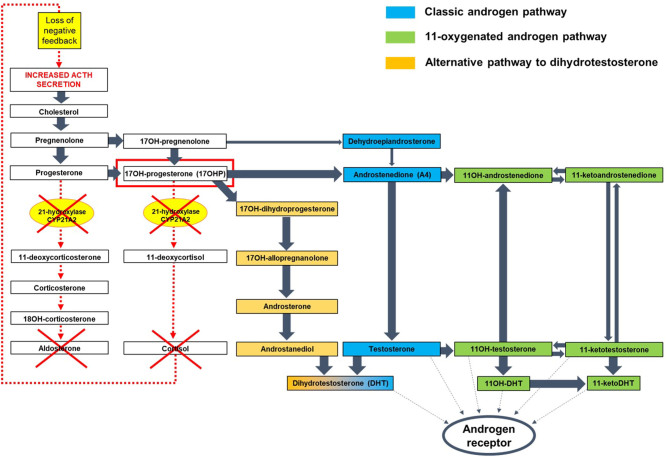Figure 1.
Pathophysiology of CAH due to 21-hydroxylase deficiency. Simplified representation of the steroid hormone biosynthesis, with a focus on androgen generation. 21-hydroxylase deficiency causes defective secretion of aldosterone and cortisol. The latter leads to excessive ACTH secretion from the pituitary, which results in adrenal androgen excess. Androgens can be generated through three pathways: the classic androgen pathway through DHEA; the 11-oxygenated androgen pathway through androstenedione (A4); and the alternative pathway to dihydrotestosterone (DHT) through androsterone. The alternative DHT pathway is active in the testis during male development in the foetus but not active in childhood and adults. The accumulation of 17OH-progesterone (17OHP) in CAH (circled in red) increases atypical conversion of 17OHP to A4 by CYP17A1 17,20-lyase activity, which physiologically has a much higher preference for the conversion of 17OH-pregnenolone to DHEA. Accumulating 17OHP also drives increased androgen production by the alternative DHT pathway, and increased A4 feeds enhanced 11-oxygenated androgen pathway activity. The classic pathway via DHEA is downregulated in CAH.

 This work is licensed under a
This work is licensed under a 